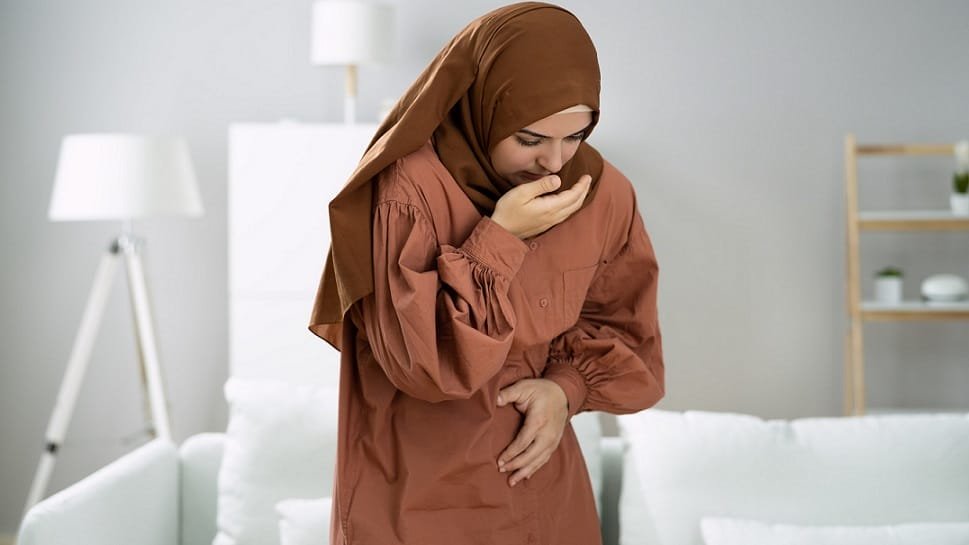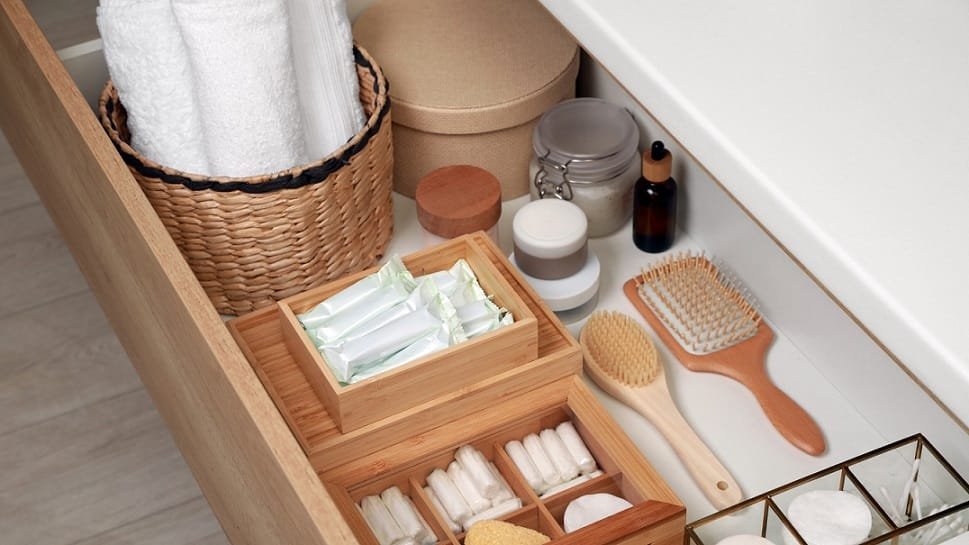Menstruation in Islam
Islam is a religion that treats many sensitive aspects of human lives with pragmatism and empathy. It also places great emphasis on many essentials of a good life including hygiene, social etiquette, respect and judicious relations. Therefore the subject of menstruation in Islam is addressed head on. The Holy Quran, Sunnah (practical example) of the Prophet (Peace be Upon Him), of his wives and the female Companions (Sahabiyat), and Ahadith (narrations) of the Prophet (PBUH) are vocal on the topic.
The Quran instructs the Prophet (PBUH) to respond to his Companion’s queries related to menstruation. Allah lays down the rules regarding menstruating women about whom the culture and/ or religions of that time as well as many others at many other times had obnoxious notions. The Jews in Madinah would not eat or sit with their menstruating women. So, when the newly migrated Muslims in Madinah learnt this, they asked the Prophet (PBUH) about the matter. In response, the Holy Quran provided two-fold guidance: to clear up any misconceptions and to direct towards the right practices for a good life.
The Holy Quran on menstruation:
Verse 222 of Surah Baqarah was thus revealed as a response to the Companions’ queries:
They ask thee concerning women’s courses. Say: ‘They are a hurt and a pollution: So keep away from women in their courses, and do not approach them until they are clean. But when they have purified themselves, ye may approach them in any manner, time or place ordained for you by Allah. For Allah loves those who turn to Him constantly and He loves those who keep themselves pure and clean.’
- Your wives are as a tilth unto you; so approach your tilth when or how ye will. But do some good act for your souls beforehand; and fear God and know that ye are to meet Him (in the Hereafter) and give (these) good tidings to those who believe. – (The Holy Quran, Translation by A. Yusuf Ali)
Menstruation – a Hurt and Pollution (Adha):
A hurt means that it is a painful or inconvenient condition for women. For many women, periods are moderately or extremely painful. They are certainly a pollution or waste that leaves a woman’s vagina due to the breakdown of the uterine lining every month.
Stay Away From Sexual Organ During Menstruation:
To ‘keep away’ in the above verse means ‘to (only) avoid the sexual organ’. (Tafsir Ibn Kathir). The Prophet PBUH is reported to have said that one is allowed to do anything he wishes, except having sexual intercourse.
It is reported in the Sahih Bukhari and Sahih Muslim (the two authentic Hadith compilations) that Maymunah bint Al-Harith Al-Hilaliyah said, ‘Whenever the Prophet wanted to fondle any of his wives during the periods (menses), he used to ask her to wear an Izar (a sheet covering the lower-half of the body).’ (Sahih Bukhari)
Until Women Are Clean:
Clean in this verse refers to being purified from blood, which is considered filth or ‘najs’. Couples can fondle and enjoy each other avoiding intercourse during menstruation. Sexual relations are allowed to be resumed after the woman is clean from blood and has bathed at the end of her period. Therefore, men are told to ‘only’ avoid going to their wives for sexual intercourse until their wives have been purified from blood.
And Have Purified Themselves:
At the end of the period, it is obligatory upon women to take a bath, called ‘ghusl’ in Arabic, and purify themselves with water (or sand for tayammum in the absence of water). ‘Ghusl’ is performed in a prescribed manner just like the ablution (or wudhu) is done in a prescribed way before offering prayers. A woman is purified from the ‘najs’ only after performing the ghusl and free to resume relations with her husband.
Flexibility Regarding Sexual Intercourse:
It is allowed at any time, manner or place. Within wedlock, there is great flexibility regarding the time, manner and place of intercourse since sexual relations outside of wedlock are entirely prohibited.
Women Are a Tilth:
Due to misconceptions about sexual practices, some Muslims in Madinah came to the Prophet (PBUH) and asked him regarding having relations with their wives from behind in the vagina. The Prophet (PBUH) told them: ‘Have sex with her as along as it occurs in the vagina.’ Imam Ahmad recorded this Hadith.
Therefore, as long as sex takes place in the vagina, the position does not matter. Similarly, place and time do not matter either. The analogy drawn in this verse is that of a man’s harvest. Since a person’s harvest is important to him, he cares for it and does not raze or destroy it. Likewise, a man’s offspring is borne in the woman’s womb who is his tilth. He should care for her physical and emotional conditions and needs. He also therefore needs to wait on her during her period. This creates mutual respect between the couple.
Anal Sex is Prohibited:
According to verse 222 and the Hadith above, anal sex is forbidden in Islam. Scholars agree that the ‘place ordained by Allah’ refers to the vagina. While in verse 223 ‘approach your tilth how ye will’ refers to the position during sex, which could be any as long as it is in the vagina. So, sex in the anal canal is strictly prohibited.
Good Act:
After the end of menstruation, purifying oneself is obligatory before having sexual relations. Likewise Allah instructs Muslims to continue doing acts of worship and keep away from what is prohibited. Even relations between a husband and wife become an act of worship if Allah’s Name is pronounced beforehand.
Prayer to say before intercourse:
Al-Bukhari reported that Ibn `Abbas narrated that the Prophet PBUH said:
If anyone of you on having sexual relations with his wife said: `In the Name of Allah. O Allah! Protect us from Satan and also protect what you bestow upon us (i.e., the coming offspring) from Satan,’ and if it is destined that they should have a child then, Satan will never be able to harm him.
Conclusion: Menstruation in Islam
In conclusion, menstruation in Islam is addressed with both compassion and clarity, emphasizing hygiene, respect, and the emotional well-being of women. The teachings from the Quran and Hadith provide practical guidance, helping believers navigate this natural process with dignity and understanding. By fostering mutual respect and adherence to Islamic principles, these guidelines ensure harmony and create an environment of care and support within families and communities.
Discover the Islamic perspective on menstruation, covering Quranic guidance, Hadith insights, hygiene, and respectful practices. Learn more about Menstruation in Islam.
Written By: Amna Saadat Ali




